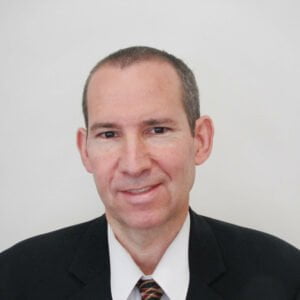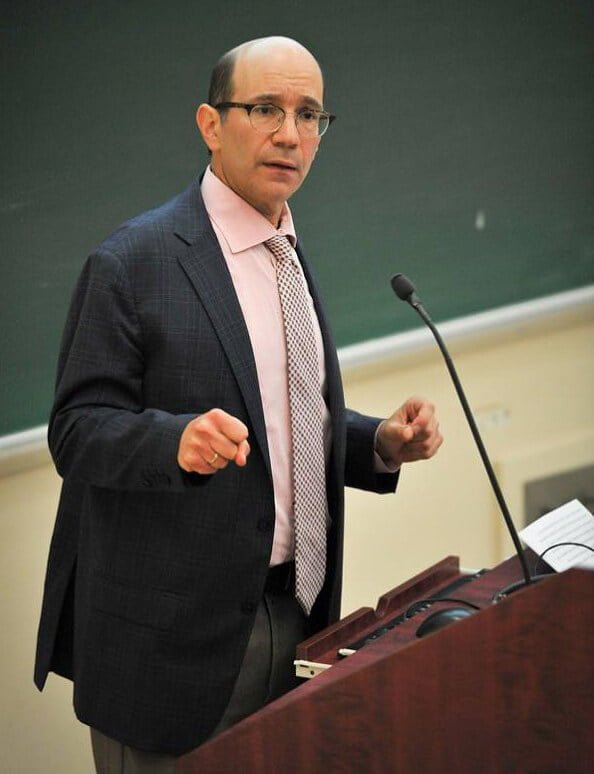
MONTREAL – It is difficult to believe that an international series of events called Israel Apartheid Week (IAW) has been going on for 13 years now, let alone that it takes place in over 200 countries.
It is my belief that we should all be appalled by IAW’s mere presence on this earth. Yet, over the next month, organizers will claim to raise awareness of what they call “Israel’s settler-colonial project and apartheid system over the Palestinian people and to build support for the growing boycott, divestment and sanctions (BDS) movement.”
It is too bad tough-talking Israeli actor Lior Raz, the star of the Netflix sensation Fauda, was not in Montreal this week instead of last.
In Montreal, IAW began last Monday on all four university campuses (McGill, Concordia, Université de Montréal and Université de Québec a Montréal) and stretches over 10 days. B’nai Brith Canada’s Quebec Region Office and Jewish student activists have been monitoring the situation closely.
I asked Gil Troy, a noted political commentator and highly respected professor of history at McGill, what he thinks about IAW.
“As a professor, as a Jew, as a liberal democrat, as a thinking human being, and as someone who opposed the evil South African apartheid regime and knows that apartheid means formal racial segregation – which has never existed in Israel or the territories – I am completely appalled that such a week exists, especially on our universities campuses which are supposed to be centres of critical thought, not propagandizing groupthink,” Troy said. “It is a modern blood libel. Yes, Israel exists. Yes, apartheid existed – but an Israel Apartheid week makes as much sense as a Canada [is a] Tropical Rain Forest Week, and is as offensive as a Canada Apartheid or Canada [is a] Nazi Dictatorship week. It just ain’t so.”

Should universities ban events like IAW? “As a professor who takes controversial positions by supporting liberal democracies like Israel, I fear universities getting into the business of banning thought,” Troy said. “At the same time, to the extent that Israel Apartheid Week encourages anti-Jewish sentiment and hooliganism on campus and creates a hostile environment for Jewish students, we need to have university administrators, professors, donors, parents and alumni denouncing these ugly attacks that make Jews feel unwelcome on university campuses. Tactically, we also have to be careful – sometimes these Israel Apartheid Weeks are severely under-attended and if we make them martyrs we give them oxygen and attention, so beware of blowback.”
To top that off, IAW activities in Montreal alone include panels, workshops, film screenings, demonstrations and cultural events aimed at “raising awareness around the BDS campaign against Israeli apartheid.” Speakers included Dr. Nahla Abdo, an Arab feminist scholar and activist, Saleem Haddad, author of a debut novel called Guapa, and Dr. Nuha Shaer, a Palestinian researcher and Simona Sharoni, a feminist scholar and activist.
So what were people exposed to? What kinds of anti-Israel propaganda are being showed to students who attend IAW events at campuses around the world?
In Montreal, the program began with a dining experience called Eat Like a Palestinian at Concordia.
Then it was on to panels and film screenings such as Profiling of Arabs and Muslims in Canada: A Historical Perspective and In Compassionate Resistance and Solidarity: Envisioning Post-Apartheid Palestine, the latter featuring Sharoni examining the ethics and politics of solidarity initiatives designed to end the Israeli “occupation.”
Organizers no doubt revelled in the screening of On the Side of the Road, a 2013 Israeli documentary film written and directed by Lia Tarachansky. The film focuses on the “Israeli collective denial” of the events of 1948 that led to the country’s independence. It follows war veterans Tikva Honig-Parnass and Amnon Noiman as they tackle their denial of their actions in the war. The film also tells the story of Tarachansky, an Israeli who grew up in a settlement in the West Bank but as an adult began to realize the problems the modern State of Israel had for some Palestinians.
Then there was The Wanted 18, an animated documentary film which recreates an astonishing true story: the Israeli army’s pursuit of 18 cows, whose independent milk production on a Palestinian collective farm was declared “a threat to the national security of the State of Israel.”
In Reclaiming Arab Queer Stories: An Evening with Saleem Haddad, images of ISIS throwing gay men off towers in Syria to the media rhetoric following the Orlando nightclub shootings in 2016, LGBTQ+ Arabs claim to have found themselves at the crossfires of global “clash of civilizations” discourses.
Another session called The Ethnic Cleansing of Palestine: A Never Ending Resistance was held at Concordia, where Dr. Abdo and journalist Rania Khalek spoke about their goal “to help Palestinians acquire their right of return.”
A workshop on BDS focused on the understanding of the movement to what organizers said was aimed at ending Israeli “apartheid.” Since BDS began in 2005, organizers boasted that there have been major victories through grassroots campaigns, and mobilizations. They cited G4S, a UK security company involved in Israeli prisons that was forced to end its contracts and investments in Israel, and telecommunications giant Orange, which also ended its contracts in Israel under pressure from BDS campaigns in France, Tunisia, and Egypt. The workshop disturbingly focused on two current global BDS campaigns launched by the Boycott National Committee in the Territories and how it can be implemented locally.
Still to come as of this writing is a workshop called Occupation 101, a BDS panel discussion.
Among the partners, I was surprised to see the Black Students’ Network of McGill and Radio McGill CKUT taking a stand against Israel. “It is particularly dismaying that the Black Students Association, whose members should know the meanings of the words ‘apartheid’ and ‘racism,’ would allow those words to be hijacked and imposed on the Israel-Palestinian conflict which is a national conflict, not a racial conflict,” Troy said. “By using those words sloppily, inaccurately, these lose their power and meaning and I guess the McGill radio station has as much intellectual independence and credibility as the McGill Daily and the old Soviet rag, Pravda. This is dismaying, not surprising. . .”
With large-scale events like this, there’s no wondering why Israel’s image takes such a constant hammering. Furthermore, while the subjects and issues offered through these materials are not necessarily false, by presenting them through a one-sided lens that primarily holds Israel at fault (and not, say, Palestinian leaders who’ve refused a Palestinian state time and time again), they’re certainly not true either.
Mike Cohen is B’nai Brith Canada’s Quebec news bureau chief, a veteran writer and municipal politician. He can be reached at [email protected]. Follow him on Twitter @mikecohencsl

